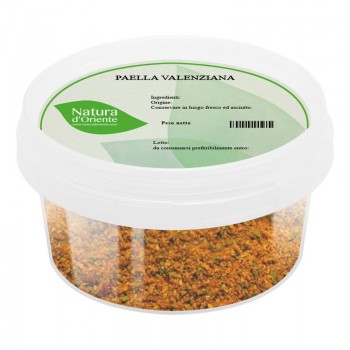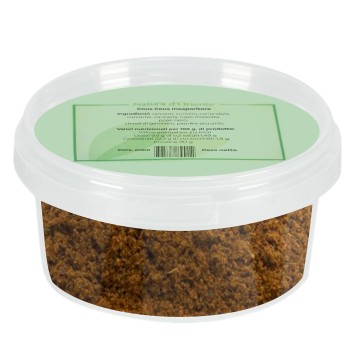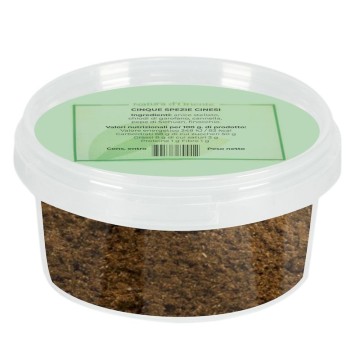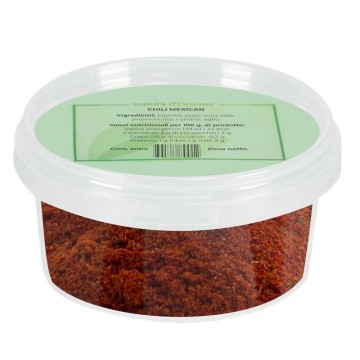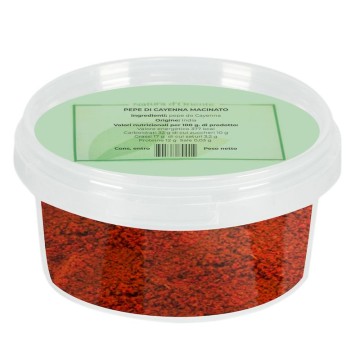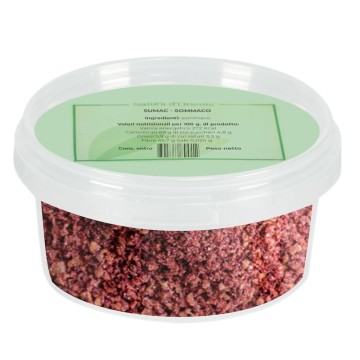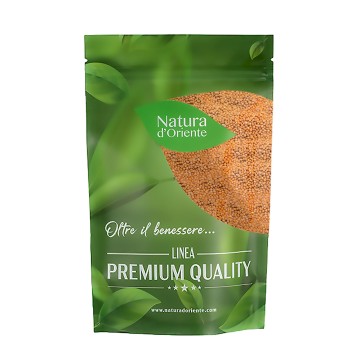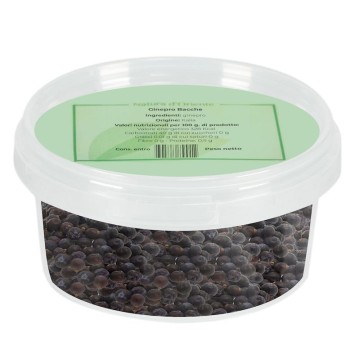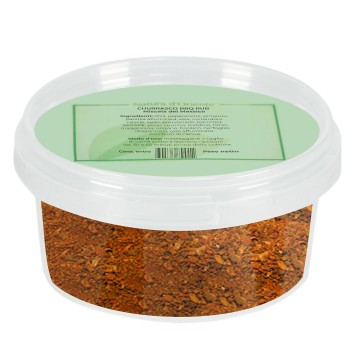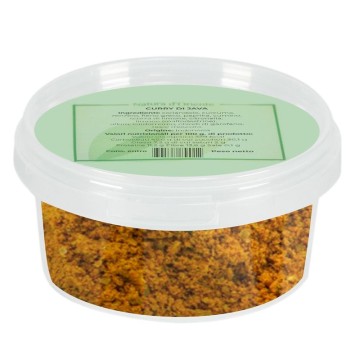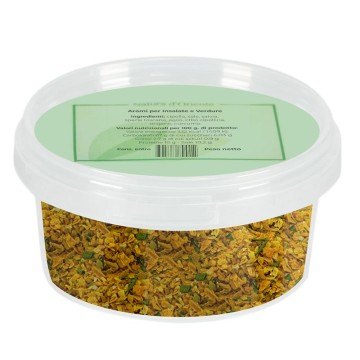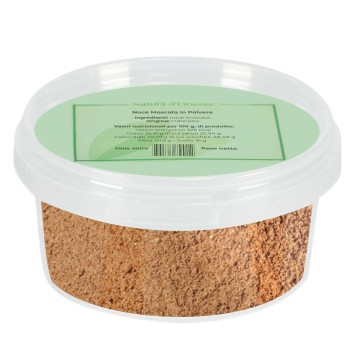Black Cumin - Nigella: properties and benefits:
Black cumin seeds are very rich in vitamins, especially A, C and group B, and mineral salts, including calcium, iron, copper and zinc. They also contain essential fatty acids omega-3 and omega-6, linoleic acid, oleic acid, polyphenols and saponins. Both the seeds and black cumin oil are useful for raising the immune defenses, treating digestive problems and bad breath, kidney, liver, respiratory and cardiovascular problems. The oil is also excellent for fighting some skin conditions, such as acne, dermatitis and eczema, applied directly to clean and dry skin.
The origins of black cumin and its uses throughout history
The name nigella derives from the Latin niger, black, the color of the seeds. Given its widespread use, it is known by many terms, which make it confused with other spices: black cumin, black seed, fennel flower, nutmeg flower, Roman coriander, black onion seed, black sesame or black wheat.
Nigella was already appreciated by the ancient Egyptians, as evidenced by the seeds found in various archaeological sites (in the tomb of the Pharaoh Tutankhamun there were amphorae full of nigella oil). Although their function in Egyptian culture is unknown, these findings tell us that the seeds and oil of the plant must have had an important role if selected to accompany the pharaoh after life.
The first written evidence of the use of nigella sativa can be found in the book of Isaiah, in the Old Testament, where the prophet opposes the cultivation of nigella and cumin (typical Egyptian crops), praising the cultivation of wheat (Isaiah 28: 25, 27). We know for sure that it was used as a medicine in ancient Greece, for the treatment of intestinal and genital disorders. In the Middle Ages, Charlemagne indicated the plant as one of those indispensable in the garden.
The name "blessed seeds" can be traced back to Arab tradition, the indication of the Prophet advised to always use them as they cured all diseases, except death. Recent scientific studies confirm the therapeutic value attributed to the plant, it is even recognized as having the power of "immune system regulator", useful for fighting degenerative diseases.
In Middle Eastern cuisine, nigella, after a quick toasting that enhances its bitter and pungent flavor (vaguely reminiscent of oregano), is used in traditional dessert or biscuit recipes, to flavor and cover particular types of bread, or as a decoration in salads.
Our proposal in the kitchen: paillard with potatoes and black cumin mayonnaise
Ingredients: Veal rump (4 slices) 480 g Potatoes 800 g Sage 10 leaves Parsley 4 sprigs Thyme 4 sprigs Bay leaves 2 Chives 8 sprigs Rosemary 1 sprig Extra virgin olive oil to taste Fine salt to taste For the mayonnaise Seed oil 250 g Egg yolks medium, very fresh 2 Black cumin 6 g White wine vinegar 5 g Lemon juice ½ To garnish Lamb's lettuce (optional) to taste.
PREPARATION: To prepare the paillard with potatoes and cumin mayonnaise, start with the mayonnaise. In a bowl, combine the egg yolks at room temperature well separated from the egg whites, add part of the lemon juice (you can pour the whole dose now or divide it so as to lighten the sauce at the end of the preparation) and add the white wine vinegar. Then start whipping with the electric mixer, add the seed oil in a very thin drizzle. Continue to beat in the same direction: the mixture should become smoother, thicker and clearer.
When it has reached the ideal consistency, pour in the lemon juice, always beating; the mixture in contact with the lemon juice will take on a lighter color. If you suddenly see lumps appear in the mayonnaise, as if it were curdled, the mayonnaise has gone haywire. But you can fix it this way: set aside the haywire mayonnaise and in another container put another egg yolk; blend again adding a drizzle of oil and then, still in the bowl, add a spoonful at a time and very slowly, the mayonnaise that has gone crazy, and everything should return to normal.
Now that the mayonnaise is ready, add the cumin, mix and then cover the bowl with cling film to store the mayonnaise in the refrigerator until you use it (if you prefer, you can alternatively prepare the fake mayonnaise without eggs, to which you add the cumin).Now pasted to prepare the spices that will be used to season the potatoes. Take the sage, parsley, thyme, rosemary, bay leaves and chives and chop them very finely with a knife or a mezzaluna.
Then, wash the potatoes under running water, then peel them with a potato peeler or the blade of a small knife and divide them in half. Place each half on the cutting board with the cut side facing down and obtain half moons about 1 cm thick. In a large pan, pour the oil until it covers the bottom and heat it for a few moments. Then pour in the chopped potatoes and cook over medium heat for about 20-25 minutes, stirring often until they are golden brown on all sides. Then add the mix of previously chopped aromatic herbs, mix and let it flavour for 1-2 minutes. Turn off the heat and season with salt to taste.
Then move on to preparing the paillard. Heat a cast iron grill over high heat. Take the paillard, beat it lightly with the meat tenderizer if necessary to make the slice only a few millimeters thick and place it on the griddle to sear it for a few seconds. Then turn it over using a spatula because with the prongs of a fork you would risk letting the internal juices of the meat come out and the result would be more stringy.
Cook for a few seconds on the other side too. Now that you have all the ingredients ready, you can compose your second course: for example, you can arrange a bed of lamb's lettuce on a serving plate and place the paillard next to the potatoes and mayonnaise that you have taken out of the fridge. Serve your paillard with potatoes and hot cumin mayonnaise!

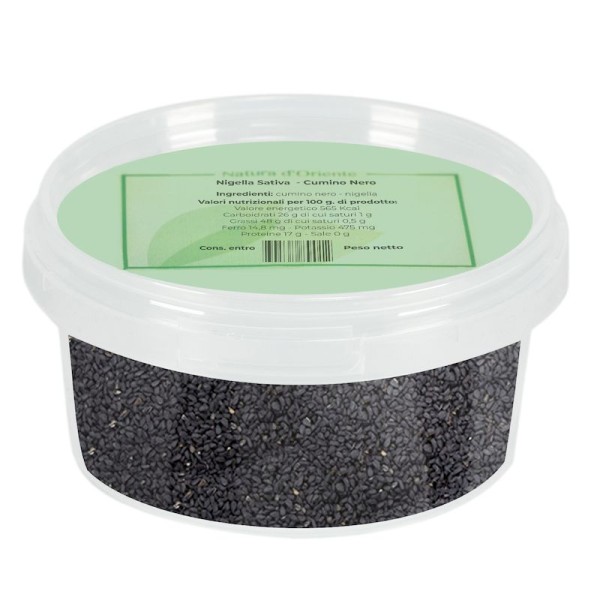









 No reward points for this product.
No reward points for this product.

